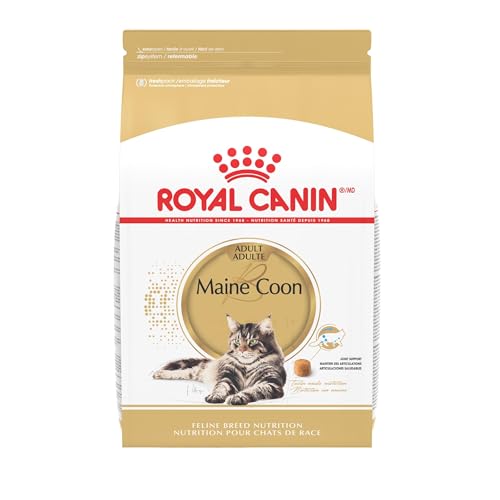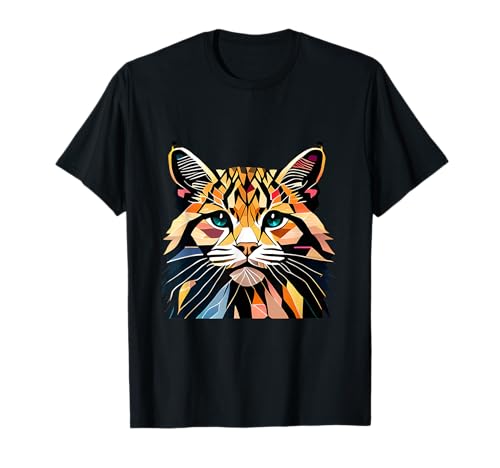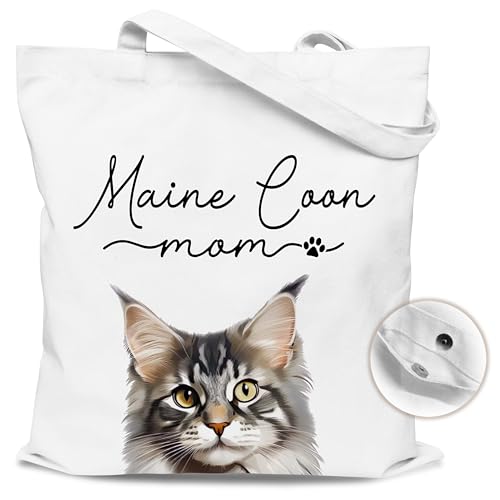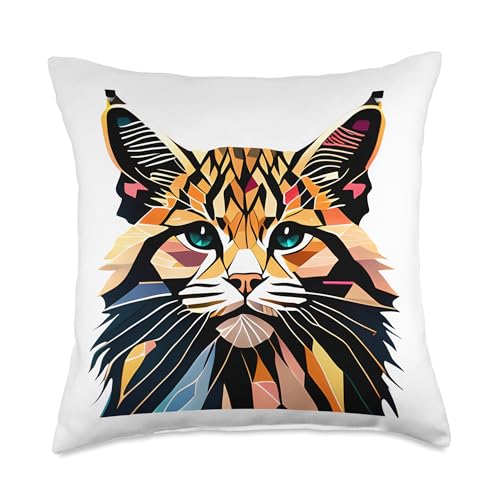Origins of Maine Coon, Siberian, and Norwegian Forest Cats
As a cat lover, you might be wondering where these beautiful breeds originated from. Let’s dive into the fascinating history of the Maine Coon, Siberian, and Norwegian Forest Cats.
Maine Coon:
- The Maine Coon is the only cat breed native to the United States.
- Legend has it that their ancestors were longhaired cats brought to America by European sailors.
- Over time, they adapted to the harsh New England climate and developed their large bodies, rugged coats, and tufted ears.
Siberian:
- Hailing from Russia, the Siberian cat is believed to have originated thousands of years ago, living in the Siberian forests.
- These cats were treasured by Russian royalty for their hunting skills, agility, and thick, water-resistant coats that protected them in the frigid temperatures.
- It’s fascinating to think that the Siberian cat’s ancestors roamed the wilds of Siberia!
Norwegian Forest Cat:
- With their majestic appearance, the Norwegian Forest Cats have a history intertwined with Norse mythology and folklore.
- These cats were revered companions of the Vikings, believed to bring good luck and protect against evil spirits.
- Their long, flowing coats and strong bodies were developed over centuries to withstand the harsh conditions of the Norwegian forests.
It’s awe-inspiring to learn about the origins of these incredible cat breeds. The Maine Coon, Siberian, and Norwegian Forest Cats each have unique stories that have contributed to their distinct traits and characteristics. Keep reading to discover more about their temperaments and find the perfect feline companion for you!
Now that you know where these cats come from, let’s delve into their temperaments, which will help you in deciding which breed best suits your lifestyle.
Physical Characteristics and Size of Maine Coon Cats
If you’re a cat lover, you’ll be enchanted by the majestic Maine Coon cat. These feline beauties are known for their impressive physical characteristics and size. Let’s dive into what makes them so unique!
1. Large and Sturdy: Maine Coon cats are one of the largest domestic cat breeds. Their sturdy and muscular build gives them a majestic presence. You can expect adult males to weigh anywhere between 13 to 18 pounds, while females usually weigh between 8 to 12 pounds.
2. Impressive Size: Not only are Maine Coon cats heavy, but they’re also long! They often grow up to a length of 40 inches, including their tails. That’s longer than some small dogs! These big kitties will certainly stand out in any room.
3. Luxurious Coat: One of the most striking features of Maine Coon cats is their long, silky, and waterproof coat. It comes in various colors and patterns, including tabby, tortoiseshell, and solid. Their fluffy fur is perfect for snuggling and giving them that regal appearance.
4. Tufted Ears and Paws: Maine Coon cats have distinctive tufted ears and paws. Their ears are large, tufted with fur, and pointed at the tips, giving them an adorable lynx-like look. Their paws are wide, allowing them to walk easily on snow and act as natural snowshoes.
5. Beautiful Bushy Tails: The signature feature of Maine Coon cats is their luxurious, bushy tails. They can flaunt their tails like a majestic plume, making them even more captivating. Their tails are long and poofy, helping them to maintain their balance while climbing and leaping.
6. Slow Growth: It’s important to note that Maine Coon cats don’t reach their full size until they are about three to five years old. They have a slow growth rate compared to other breeds. So, be patient! Your cuddly kitten will eventually grow into a magnificent, large cat.
If you’re mesmerized by the physical characteristics of Maine Coon cats, wait until you learn about their playful personalities. Stay tuned for our next section, where we’ll explore their temperaments and see if they’re the perfect fit for your cat-loving lifestyle.
Physical Characteristics and Size of Siberian Cats
Siberian cats are known for their unique and striking physical features. They are medium to large-sized cats with a strong and muscular build. These cats have a powerful presence and give off an air of elegance.
Size: Siberian cats are among the largest domestic cat breeds. They typically weigh between 10 to 20 pounds, with males being larger than females. Their size is a testament to their strength and robust nature.
Coat: One of the most distinctive features of Siberian cats is their thick and luxurious coat. It is composed of three layers – a dense undercoat, a middle coat, and a long, water-repellent topcoat. This coat helps them thrive in cold climates and gives them a majestic appearance.
Colors and Patterns: Siberian cats come in a variety of colors and patterns. They can be found in solid colors, tabby patterns, calico, tortoiseshell, and color points. Each coat variation adds to their individuality and charm.
Eyes: Another striking feature of Siberian cats is their expressive almond-shaped eyes. Their eyes come in a range of colors, including green, gold, and copper. The combination of their eyes and their thick coat gives them an alluring and captivating gaze.
Body Type: Siberian cats have a muscular and well-proportioned body. They have a broad chest, strong legs, and a sturdy bone structure. This physical strength allows them to navigate any terrain with ease and agility.
Growth Rate: Siberian cats have a slow growth rate compared to other breeds. They reach their full size and maturity at around 3 to 5 years old. This gradual growth allows their bodies to develop properly, ensuring a healthy and robust cat.
Physical Characteristics and Size of Norwegian Forest Cats
Norwegian Forest Cats are truly magnificent creatures with their distinct physical characteristics. Let’s delve into their size and appearance to appreciate their unique beauty.
Size and Build
Norwegian Forest Cats are large and powerful felines. They typically have a solid and muscular build, making them sturdy and agile. Measuring around 18 to 22 inches in height and weighing between 8 to 16 pounds, these cats exude an air of majesty.
Luxurious Coat
One of the most striking features of Norwegian Forest Cats is their thick and luscious coat. It’s made up of two layers: a dense undercoat that keeps them warm and a long, water-repellent topcoat. The coat helps them withstand the harsh Scandinavian winters, making them perfectly suited for colder climates.
Variety of Colors
Norwegian Forest Cats come in a wide range of colors and patterns. From solid colors like white, black, and blue to stunning combinations of tabby, calico, tortoiseshell, and more, these cats offer a kaleidoscope of beautiful hues to cat lovers.
Expressive Eyes
The almond-shaped eyes of Norwegian Forest Cats are truly captivating. They can be of various colors, including green, gold, or copper, which intensify their mystique and allure. Their eyes are known to be expressive, reflecting their intelligence and curiosity.
Slow Growth Rate
While Norwegian Forest Cats are known for their large size, it’s important to note that they have a slow growth rate. It takes them around four to five years to fully mature physically, allowing them to develop their majestic appearance gradually.
Temperament and Personality of Maine Coon Cats
As a cat lover, you’ll be delighted to learn about the unique temperament and charming personality of Maine Coon Cats. They are known for their friendly and sociable nature, making them a wonderful addition to any household. Here are a few key traits that make Maine Coon Cats so special:
1. Gentle Giants: Maine Coon Cats are often referred to as “gentle giants” because of their large size and gentle disposition. Despite their imposing appearance, they are incredibly sweet and gentle. You’ll often find them rubbing against your legs or curling up on your lap for some quality time together.
2. Playful and Curious: Maine Coon Cats have a playful and curious nature that will keep you entertained for hours. They love interactive toys, puzzle games, and even learning new tricks. Their inquisitive nature means they’ll explore every nook and cranny of your home, always on the lookout for something interesting to investigate.
3. Social Butterflies: Maine Coon Cats thrive on social interaction and love being part of the family. They are known for getting along well with children and other pets, making them an excellent choice for multi-pet households. Don’t be surprised if your Maine Coon Cat becomes the center of attention during family gatherings!
4. Intelligent and Trainable: Maine Coon Cats are highly intelligent and can be easily trained. They are quick learners and can understand and follow commands. Consider teaching them basic tricks or even some agility exercises. Their intelligence also makes them excellent problem solvers.
5. Loyal Companions: Once you’ve earned the trust and loyalty of a Maine Coon Cat, you’ll have a friend for life. They form strong bonds with their humans and enjoy being part of their daily lives. Whether it’s snuggling up in bed or keeping you company while you work, your Maine Coon Cat will always be by your side.
Understanding the temperament and personality of Maine Coon Cats can help you decide whether they are the right fit for your family. Keep their playful, sociable, and intelligent nature in mind as you consider welcoming one of these amazing cats into your home.
Temperament and Personality of Siberian Cats
If you’re considering getting a Siberian cat as a pet, it’s important to know about their wonderful temperament and unique personality. Siberian cats are known for their lovable and charming nature, making them a popular choice among cat enthusiasts like yourself.
Friendly and Affectionate:
Siberian cats are incredibly friendly and enjoy being around their human companions. They are known for their loving nature and will often seek out attention and affection from you. Whether it’s curling up on your lap or following you around the house, these cats love to be close to their owners.
Playful and Energetic:
Siberian cats are notorious for their playful and energetic behavior. They have a curious nature and love exploring their surroundings. Providing them with toys and interactive playtime will help keep them entertained and satisfied. Get ready for endless hours of play and fun with your Siberian companion.
Social and Outgoing:
Siberian cats are social butterflies and enjoy the company of both humans and other animals. They have a natural ability to get along well with children and other pets in the household. Their friendly and outgoing nature makes them a great addition to any family.
Intelligent and Trainable:
Siberian cats are highly intelligent and quick learners. They can easily pick up new tricks and commands, making them trainable pets. From learning to fetch to mastering basic commands, your Siberian cat will surprise you with their abilities. Mental stimulation and interactive games will help keep their intelligent minds engaged.
Loyal and Devoted:
Once you welcome a Siberian cat into your home, you can expect unwavering loyalty and devotion. These cats form strong bonds with their owners and will eagerly shower you with affection. Your Siberian cat will always be by your side, providing you with endless love and companionship.
Understanding the temperament and personality of Siberian cats is essential in making an informed decision about whether they are the right fit for your family. With their friendly nature, playful demeanor, sociability, intelligence, and loyalty, Siberian cats can truly bring joy and happiness to your life.
Temperament and Personality of Norwegian Forest Cats
Norwegian Forest Cats are known for their charming and captivating personalities. If you’re considering bringing one into your home, here’s what you need to know about their temperament:
- Friendly and Affectionate: Norwegian Forest Cats are exceptionally friendly and love being around people. They enjoy being petted and will often curl up in your lap for a cozy cuddle session. Their affectionate nature makes them great companions for both individuals and families.
- Playful and Energetic: These cats have a natural zest for life and are always up for a play session. They enjoy interactive toys, chasing balls, and even playing hide-and-seek. Their playful energy can bring endless joy and entertainment to your home.
- Social and Outgoing: Norwegian Forest Cats thrive on human companionship and enjoy being part of the family. They are known to seek out attention and will happily engage in conversations with their gentle and melodious voices. They adapt well to new surroundings and are generally comfortable in social situations.
- Intelligent and Trainable: These cats are not only beautiful but also intelligent. They can quickly learn new tricks and even a few commands with proper training. Their curiosity and problem-solving skills make them an ideal candidate for interactive puzzle toys and other mentally stimulating activities.
- Independent, but Loyal: While Norwegian Forest Cats appreciate their independence, they also form strong bonds with their owners. They are known to be loyal and devoted companions, always ready to offer comfort and support. They will follow you around the house and often insist on being part of whatever you’re doing.
Grooming and Maintenance of Maine Coon, Siberian, and Norwegian Forest Cats
Caring for your beloved Maine Coon, Siberian, or Norwegian Forest cat involves some grooming and maintenance to keep them looking their best. Here are some key tips:
Brushing:
- Regular brushing is essential for these long-haired beauties to prevent matting and keep their coats healthy and shiny.
- Use a wide-toothed comb or a slicker brush to gently brush through their fur, starting from the roots to the tips.
- Brush them at least once or twice a week, and during shedding seasons, such as spring and fall, increase the frequency to keep loose hair under control.
Bathing:
- Despite their self-grooming abilities, occasional baths are still necessary to keep their coats clean and free from dirt and debris.
- Use a cat-specific shampoo and lukewarm water to gently lather their fur.
- Rinse thoroughly and make sure to dry them completely to avoid chilling or matting.
Nail Trimming:
- Regular nail trims are important to prevent their claws from becoming too long or sharp, which can cause discomfort and potential injury.
- Use a cat nail clipper or grinder specifically designed for cats.
- Be cautious not to cut into the quick, the pink area inside the nail, as it can be painful and may cause bleeding.
Dental Care:
- Maintaining good dental hygiene is crucial for their overall health.
- Introduce a regular dental care routine, starting when they are kittens, by gradually brushing their teeth with a cat toothbrush and toothpaste.
- Additionally, provide dental treats or toys designed to promote oral health.
Ear Cleaning:
- These cats are prone to earwax buildup and infections due to their tufted ears.
- Regularly check and gently clean their ears using a cat-specific ear cleaner and cotton balls or pads.
- Avoid inserting anything deep into their ear canal to prevent injury.
Remember, regular grooming and maintenance not only keeps them looking their best but also helps prevent common issues such as matting, skin problems, and dental disease. So, set aside some time for these grooming rituals and enjoy the bonding experience with your furry friends.
| Maine Coon | Siberian | Norwegian Forest Cat |
|---|---|---|
| Regular brushing | Regular brushing | Regular brushing |
Health Issues and Considerations for Maine Coon, Siberian, and Norwegian Forest Cats
Caring for your beloved Maine Coon, Siberian, or Norwegian Forest Cat involves more than just grooming and maintenance. Keeping an eye on their health is vital to ensure they lead long, happy lives. Here are some key health issues and considerations to keep in mind:
- Hypertrophic Cardiomyopathy (HCM):
- This is the most common heart disease in cats, and these three breeds are known to be predisposed to it.
- Regular veterinary check-ups are essential to detect and manage HCM early on.
- Watch for symptoms such as difficulty breathing, lethargy, and fluid retention.
- Polycystic Kidney Disease (PKD):
- PKD is an inherited condition that affects the kidneys, causing the formation of cysts.
- It is crucial to get your cat tested for PKD to prevent the progression of the disease.
- Feeding a balanced diet, providing fresh water, and maintaining good hydration are key for kidney health.
- Obesity:
- Maine Coons, Siberians, and Norwegian Forest Cats are prone to gaining weight, so proper weight management is essential.
- Feed a high-quality, portion-controlled diet and avoid overfeeding or giving too many treats.
- Engage your furry friend in regular play and exercise to keep them active and maintain a healthy weight.
- Allergies:
- Just like humans, cats can develop allergies to various substances.
- Keep an eye out for signs of allergies, such as excessive scratching, hair loss, sneezing, or digestive issues.
- If you suspect your cat has allergies, consult with your veterinarian for proper diagnosis and management.
- Gastrointestinal Issues:
- Some cats, especially those with sensitive stomachs, may experience digestive issues.
- Providing a well-balanced diet that suits your cat’s needs can help prevent gastrointestinal problems.
- Introduce dietary changes gradually to minimize the risk of stomach upset.
Remember, providing a loving and caring environment for your Maine Coon, Siberian, or Norwegian Forest Cat includes both grooming and health considerations. Regular vet visits, a balanced diet, exercise, and attentive observation are key to ensuring your furry friend stays healthy and happy for many years to come.
Choosing the Perfect Cat Breed for Your Home
When it comes to choosing a cat breed for your home, there are several factors to consider. Whether you’re a first-time cat owner or an experienced cat lover, finding the right breed that matches your lifestyle and personality is crucial. Here are some things to think about before making your decision:
1. Size Matters:
Consider the size of the cat breed you’re interested in. The Maine Coon, Siberian, and Norwegian Forest Cats are all known for their large size. If you prefer a bigger, more imposing feline companion, these breeds may be ideal for you.
2. Temperament and Personality:
Different cat breeds have distinct temperaments and personalities. Maine Coons are known for their friendly and sociable nature, while Siberians are highly intelligent and playful. Norwegian Forest Cats are often described as independent yet affectionate. Choose a breed that matches your energy level and the type of companionship you seek.
3. Grooming Requirements:
Consider the grooming needs of each breed. Maine Coons and Norwegian Forest Cats have long, thick fur that requires regular brushing to prevent matting. Siberians have a hypoallergenic coat that sheds less and may be a better option for those with allergies.
4. Activity Levels:
Think about the activity level of the breed you’re considering. Maine Coons are energetic and playful, while Siberians and Norwegian Forest Cats are known for their love of climbing and exploring. If you’re an active individual who enjoys interactive play, these breeds will be a great fit for you.
5. Health Considerations:
It’s essential to be aware of any potential health issues associated with the breed you choose. Maine Coons, Siberians, and Norwegian Forest Cats can be prone to conditions such as hypertrophic cardiomyopathy (HCM) and polycystic kidney disease (PKD). Regular veterinary check-ups are crucial in managing and detecting these conditions.
Remember, selecting a cat breed is a personal decision. Take the time to research and understand the specific needs, characteristics, and challenges associated with each breed. By doing so, you can ensure a harmonious and fulfilling relationship with your feline companion for years to come.
Conclusion
When it comes to choosing a cat breed for your home, there are several factors to consider. Size, temperament, grooming requirements, activity levels, and health considerations all play a role in finding the perfect feline companion.
Throughout this article, we have explored the differences between the Maine Coon, Siberian, and Norwegian Forest cat breeds. Each of these breeds has its own unique characteristics and qualities that make them special.
By conducting thorough research and understanding the specific needs and challenges associated with each breed, you can ensure a harmonious and fulfilling relationship with your cat. Whether you’re looking for a large and sociable cat like the Maine Coon, a hypoallergenic option like the Siberian, or a playful and intelligent companion like the Norwegian Forest cat, there is a breed out there that will suit your lifestyle and preferences.
Remember, choosing a cat breed is a personal decision, and what works for one person may not work for another. Take the time to consider your own needs and preferences, and you’ll find the perfect cat breed to bring joy and companionship into your home.
Frequently Asked Questions
Q: What factors should I consider when choosing a cat breed for my home?
A: When choosing a cat breed for your home, it’s important to consider factors such as the size, temperament, grooming requirements, activity levels, and health considerations of different breeds. Ensuring a harmonious and fulfilling relationship with your feline companion requires researching the specific needs, characteristics, and challenges associated with each breed.
Q: How can I ensure a harmonious relationship with my cat?
A: To ensure a harmonious relationship with your cat, it’s important to consider their specific needs, characteristics, and challenges. This includes understanding their breed, size, temperament, grooming requirements, activity levels, and health considerations. By researching and taking the time to understand and meet these needs, you can establish a strong bond and create a positive and fulfilling relationship with your feline companion.
Q: Why is it important to research cat breeds?
A: Researching cat breeds is important to ensure that you choose a breed that is compatible with your lifestyle and home environment. Understanding the specific needs, characteristics, and challenges associated with each breed allows you to make an informed decision and create the best possible living situation for both you and your cat. By researching beforehand, you can avoid potential incompatibilities and create a harmonious and fulfilling relationship with your feline companion.
Q: Are there specific grooming requirements for different cat breeds?
A: Yes, different cat breeds have varying grooming requirements. Some breeds may require regular brushing to prevent matting or excessive shedding, while others may need frequent bathing to keep their coat clean and healthy. It’s important to research the grooming needs of the specific breed you choose and be prepared to dedicate the time and effort required to maintain their coat in the best possible condition.
Q: What health considerations should I keep in mind when choosing a cat breed?
A: When choosing a cat breed, it’s important to consider their potential health issues or predispositions. Some breeds may be more prone to certain health conditions, such as heart disease or joint problems. Researching the common health concerns associated with each breed can help you make an informed decision and take the necessary proactive measures to ensure the long-term health and well-being of your feline companion. Regular vet check-ups and proper healthcare are essential for maintaining your cat’s health.

















